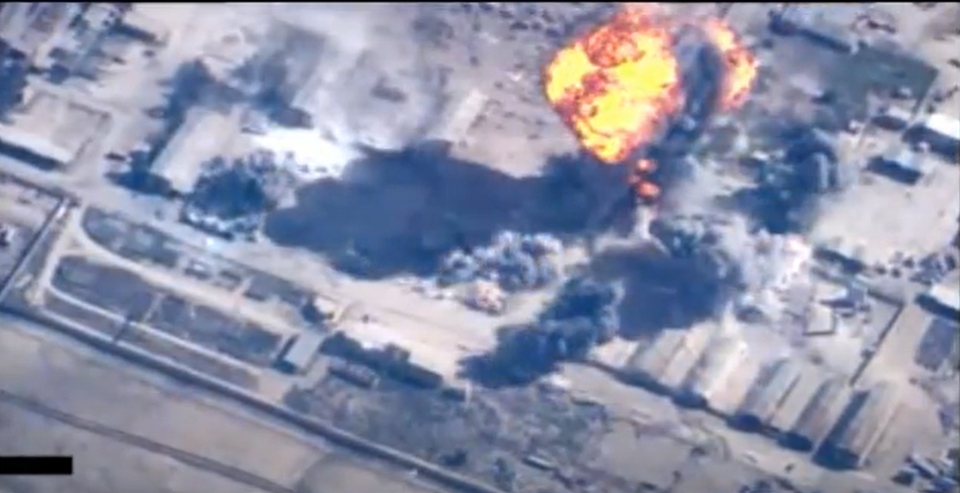
US Issues First Apology for Syrian Civilian Deaths
On May 21, the United States Central Command (CentCom) issued a statement admitting that two Syrian children died as a result of US airstrikes which targeted the Khorasan Group, an Al-Qaeda affiliate, near Aleppo last November. Six months of investigations resulted in US CentCom’s public apology, with Lieutenant General James Terry stating, “We regret the unintentional loss of lives.”
The acknowledgement of civilian casualties was the first since the United States began its campaign against the Islamic State of Iraq and al-Sham (ISIS) and other militant groups in August 2014. Lieutenant General Terry’s statement set an important precedent for the aerial operations in Syria, but his impersonal message came so late after the airstrikes that the impact has largely been lost on the local population.
During World War II, the US government passed the Foreign Claims Act, which allowed non-US citizens to request compensation for damages caused by U.S. military personnel. Although the law is only applicable in situations where damage occurred outside the battlefield, CentCom has historically issued apologies and condolence payments (also known as solatia) for injuries that occurred during combat dating back to the Vietnam War. The tradition of condolence payments continued during the wars in Afghanistan and Iraq when the US Department of Defense developed the Money As A Weapons System (MAAWS). Condolence payments are minimal (a maximum of $2,500 in Iraq), and the US military makes clear that the token compensation does not serve as an admission of legal liability. Rather, the US military regards the apology and accompanying compensation as a way to sympathize with victims and repair ties with the local community.
Modern warfare, however, has introduced the use of drones, whereby foreign troops are not physically present in the country and, therefore, are disconnected from local communities. In Syria, Pakistan, and Yemen, for example, the United States has conducted aerial operations that have resulted in direct harm to civilians, but the military has not extended the solatia program to these countries. Even apologies are rare. Thus, although Lieutenant General Terry’s public apology did not accompany a condolence payment to the families of the two child victims, it set an interesting precedent that can and should be followed for the rest of the 131 civilian deaths, 42 of whom have been children, resulting from coalition airstrikes in Syria.
Under the transitional justice framework, public apologies are a symbolic form of reparations intended to provide the victims with closure or healing. Simply recognizing the harm goes a long way towards building local support and trust within the community and redressing the affected population. This has long-term benefits in contributing to peace-building within the society because it lessens the desire for revenge attacks. However, a public apology is only one type of transitional justice tool and should be not viewed as full redress to the victims and their families. In addition, public apologies can be too public — thus, impersonal — and may not even reach the families or communities that were affected. A public apology accompanied by a private letter or visit to the victim to personally provide an explanation and compensation is more likely to bring closure to victims and positively impact their ability to move forward.
Public apologies and compensation also need to be transparent and timely in order to have a meaningful impact. If there is confusion about why certain injuries result in apologies or why property damage is compensated equal to loss of life, then victims will not feel like their grievances are actually being addressed. Moreover, CentCom’s recent investigation and public apology came six months after the incident occurred, decreasing its impact as a form of recognition for harm done. In a 2007 interview, General David Petraeus explained the importance of timing, “The quicker you can do it, the more responsive you can seem to be. And of course the more concerned you are, the more valuable it is…”
Nonetheless, CentCom’s public apology provides a small measure of accountability and sets an example for the coalition to follow for the investigation and recognition of all other civilian casualties. Credible documentation groups can contribute valuable information to these investigations and speed up the process by which militaries respond to civilian deaths. And while CentCom’s apology is an important first step for the coalition forces, it is still a long way from addressing the long-standing grievances of Syrians and the need for a holistic transitional justice process that can respond to violations committed by all parties to the conflict.
For more information and to provide feedback please email SJAC at [email protected].